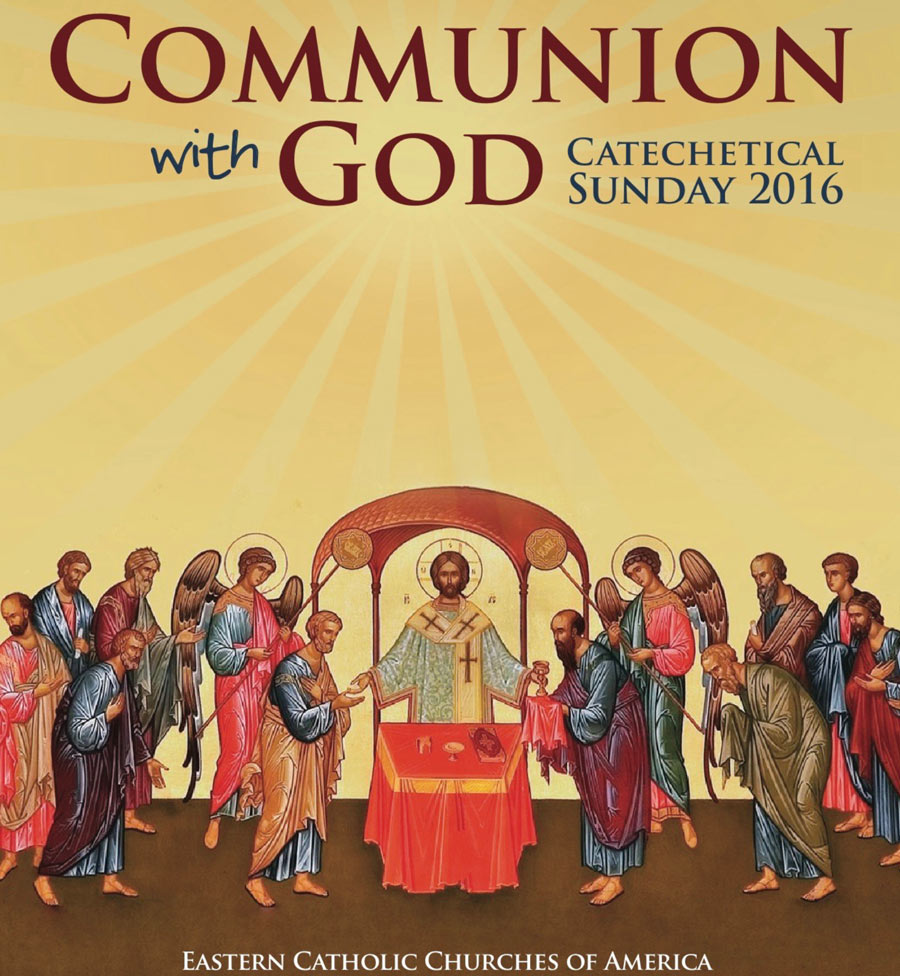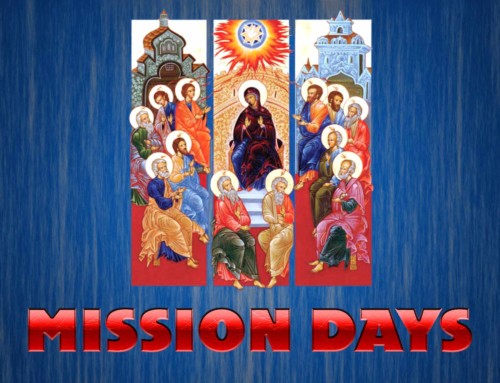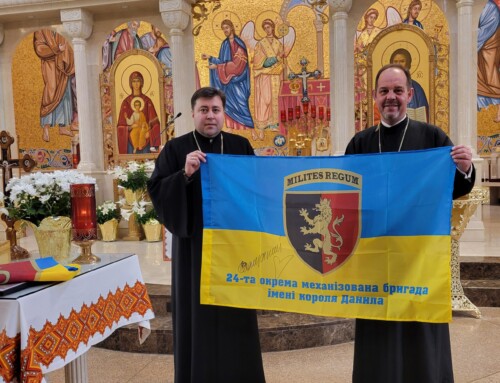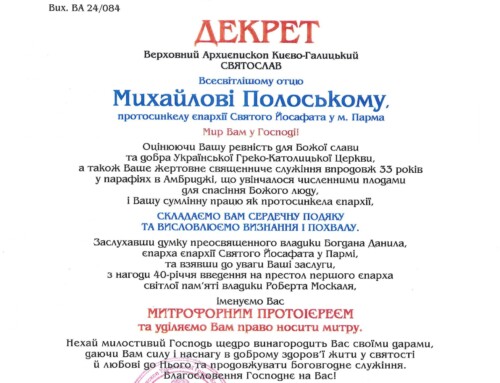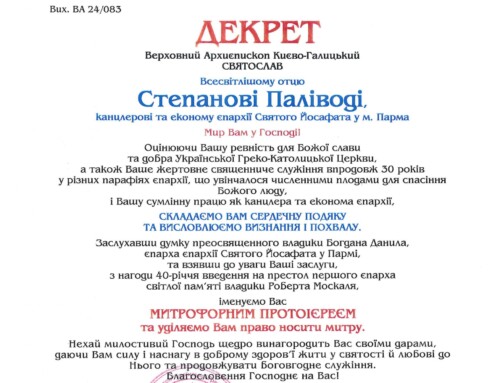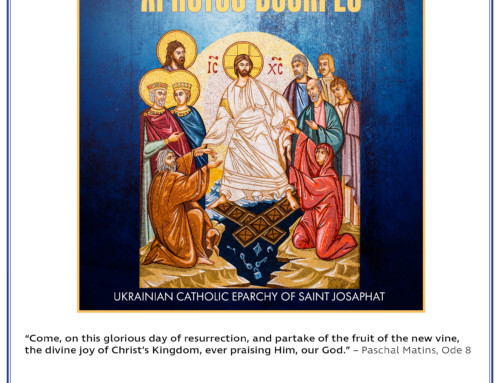Communion with God
Statement of the Eastern Catholic Eparchial Directors of Religious Education for Catechetical Sunday 2016.
Who do you say that I am? (Matthew 16:15)
We are well aware of the Apostle Peter’s faith-filled response, “You are the Christ, the Son of the living God” Matthew 16:16. For us to respond in a corresponding faith, the words of the Lord must be directed to us as the expression of a vibrant living experience, as the fruit of the gift of the Father, “Blessed are you, Simon, son of Jonah! No mere man has revealed this to you, but my heavenly Father” Matthew 16:17, so each of us must let himself/herself be moved personally by the serious question “And who do you say that I am, you who hear me spoken of, answer me! What do I really mean for you?”
Peter’s divine inspiration and response of faith came after a long period of living close to Jesus, hearing His words and observing His life and ministry. If we are serious about making a more conscious and meaningful profession of faith in Christ, we must, like Peter, listen attentively and carefully. We must follow in the school of the first disciples who became His witnesses and our teachers. At the same time we must accept the experience and testimony of no less than twenty plus centuries of history marked by the Master’s question and enriched by the immense chorus of responses of the faithful of all times and places.
Jesus, questioned about His identity shows the pedagogical shrewdness of one who does not trust hasty responses, but desires an answer matured over a period, even sometimes lengthy days of reflection coupled with prayer, in the attentive and intense hearing of the truth of the Christian faith as professed and practiced and lived in His mystical Body, the Church.
As Catechists, the desire to help everyone discover Jesus, urges us to carry out the demanding and moving task to present the compelling figure of Jesus Christ to communicants of the Church and to every person of good will. Thus we throw “open the doors to Christ” in our lives so that the primary and essential object of catechesis is attaining to the mystery of Christ in our lives as much as it is humanly possible. Catechesis is a way to lead interested persons to study this mystery in all its dimension, to reveal in the person of Christ the whole of God’s eternal design reaching fulfillment in the second Person because only He can lead us to the love of the eternal Father in the Holy Spirit and make us share in the life of the Holy Trinity for which purpose humanity was initially created.
We are compelled to consider four central points regarding the identity and mission of Jesus:
- Jesus in His historical reality and in His transcendent Messianic character, the Son of Abraham, Son of Man and Son of God;
- Jesus in His identity as true God and true man, in communion with the Father and animated by the power of the Holy Spirit as He is presented to us in the gospel narratives;
- Jesus as seen by the eyes of the inspired and glorious Church which, with the assistance of the Holy Spirit, has investigated and elucidated the data of Revelation by granting us, especially in the teachings of ecumenical councils, precise formulation of faith in Jesus Christ.
- Finally, Jesus in His life and works, in His redemptive passion and in His final and all- encompassing glorification; in our midst and within us, in history and in His Body, the Church until the end of the world. “And know that I am with you always, until the end of the world” Matthew 28: 20.
Statements on Catechesis by the USCCB
“The Church continues to sow the Gospel in God’s field” (GDC, no. 16). The soil of culture into which the seeds of faith are planted today is far different from the culture that existed when the first Catechetical Sunday was celebrated. For us in the United States, our culture offers significant challenges that influence how the Gospel is proclaimed. We live in an increasingly secular and materialistic society, which is often at odds with our Christian messages and values. The disintegration of the community and social structures that once supported religious faith and encouraged family life have been replaced by a media-and technology-driven culture that makes catechesis especially difficult. Religious instruction and catechesis compete against entertainment and sport for time in people’s busy lives…”
“Catechists today face the difficult task of proclaiming the good news of Christ Jesus in such a way that it will be heard, accepted, and authentically understood in this culture. They must reach out to those who are unevangelized, as well as work with the large numbers of people today who have not been fully catechized. We write to offer our support to those involved in this challenging ministry.” (Excerpts from the USCCB letter on catechesis)

